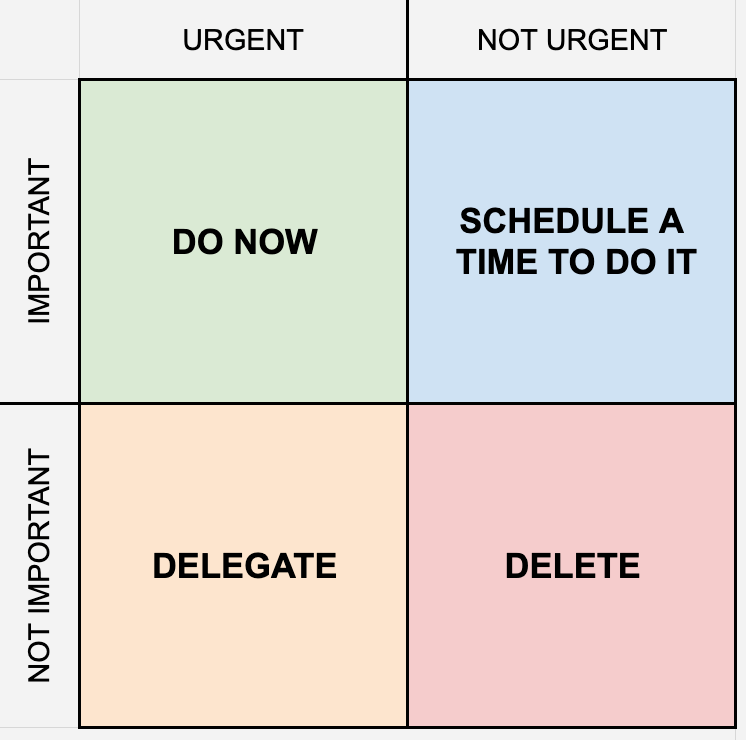Why laziness and procrastination are secrets to PR success
Strategic laziness and procrastination come in clutch.

Jacob Streiter is Vice President at Rosen Group, a full-service public relations firm headquartered in New York City.
You know that task you were just asked to take on? Put it off! Yup, that’s right. You have my permission.
Frankly, there’s just too much “ASAP” going around in this business, and in order to get the important things done — and do them well — there are certain kinds of tasks that just need to be put to the wayside.
President Dwight Eisenhower famously said, “What is important is seldom urgent and what is urgent is seldom important.” And that line of thinking eventually became the basis for the Eisenhower Matrix, a time management tool that looks like this:

If there was a magical way to visualize each and every PR professional’s to-do list plotted on the Eisenhower Matrix, my bet is we’d observe that most of us — to the detriment of our work, our clients and our mental health — end up overstuffing that upper left quadrant while underutilizing the three others.
If you treat every incoming task as “urgent,” good luck finding the time and focus to:
- Write that tailored and pithy pitch that secures a New York Times profile piece.
- Construct that media list appropriately customized to your client’s needs.
- Draft that byline that effectively addresses a complex and nuanced topic.
- Brainstorm your client’s next big idea that generates a wave of headlines.
- Cultivate collaborative and impactful relationships with your co-workers.
At the end of the day, the above activities are what lead to moving the client’s needle — and they get done only when you fight to make the time, focus and energy for them. With healthy, strategic doses of laziness and procrastination, you can go a long way in ensuring that your invaluable resources are allocated wisely.
What does strategic laziness look like? Here are a few examples:
- Using tools that free up your time and lighten your mental load, like ChatGPT to get the ball rolling on idea brainstorming and OtterAI for automated speech-to-text note-taking.
- Limiting your media intake to just two or three check-ins spread throughout the day.
- Making your pitches as short as possible, with messaging that is topline, simple and concise.
And here are examples of strategic procrastination:
- Handling calendar invites, transactional emails and other administrative tasks in batches, during pre-scheduled time blocks, rather than reactively and haphazardly as they come in.
- Tabling important but not time-sensitive projects, like drafting a press release or finalizing logistical details for a segment, until closer to (but still reasonably in advance of) the deadline.
The takeaway I propose: be lazy when that means you can get equal or better results by doing less work, and procrastinate when putting off a particular task or project allows you to focus on the high-impact work that is most immediately important.
Developing the ability to differentiate between the high-impact work and the “you’re only doing it because you have to” work — and taking a different approach to each of those categories — is how you level up in this industry from busy to productive.
Now, of course, due to the nature of PR, there will inevitably be occasions when you have to shift gears quickly for a short-notice project or pick up the pace to meet an ultra-tight deadline. But, in general, those instances should be the exception rather than the rule. And going a step further, I would make the case that the fast-moving, dynamic nature of the industry all the more underscores the importance of having a principled, discerning approach to the day’s work.
As author Greg McKeown wrote in his book Essentialism: “But more effort does not necessarily yield more results. ‘Less but better’ does.”
So, there you have it. Now you’re in on the secret to your next promotion: be lazy, and procrastinate.






